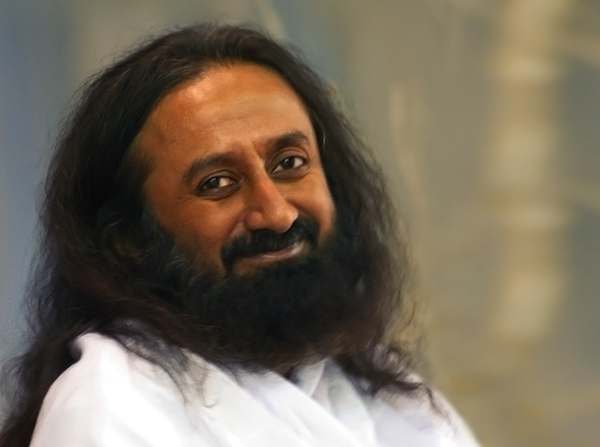By Sri Sri Ravi Shankar
Janmashtami celebrates the birth of Lord Krishna. Krishna is not a vyakti (person) but shakti(energy). Krishna was poornakalaavataran (a complete incarnation). The purpose of celebration is to realize that Krishna is in me and not different. In the Bhagwad Geeta, Lord Krishna says, “One who sees everyone in Me and sees Me in everyone, for such a person, I shall never remain hidden and he shall never be far from me.”
Lord Krishna’s life has all the nine rasas (flavors). For instance, he was naughty like a child, a warrior, joy personified and a source of knowledge. He was a perfect friend and guru. His birth on Ashtami signifies his mastery of both the spiritual and material worlds. He is a great teacher and a spiritual inspiration as well as a consummate politician. On one hand, he is Yogeshwara (the Lord of Yogis — the state to which every yogi aspires) while on the other, he is a mischievous thief. His behaviour is a perfect balance of the extremes — perhaps this is why the personality of Krishna is so difficult to fathom. The avdhoot is oblivious to the world outside and a materialistic person, a politician or a king is oblivious to the spiritual world. But Krishna is both Dwarkadheesh and Yogeshwar.
To understand Krishna, become Radha or Arjuna or Uddhava. Three kinds of people seek refuge in God. The lover, the miserable and the wise. Uddhava was wise, Arjuna was miserable and Radha was love. Nobody’s better than anyone, all are good. Krishna’s teachings are most relevant to our times in the sense that they neither let you get lost in material pursuits nor make you completely withdrawn. They rekindle your life, from being a burnt-out and stressed personality to a more centred and dynamic one. Krishna teaches us devotion with skill. To celebrate Gokulashtami is to imbibe extremely opposite yet compatible qualities and manifest them in your own life.
Krishna tells Arjuna, “You are very dear to me.” Then Krishna tells Arjuna he must surrender. Surrender begins with an assumption. First you must assume. You assume you are the most beloved of the Divine, and then surrender happens. Surrender is not an action; it is an assumption. Non-surrender is ignorance. Non-surrender is an illusion. Surrender has to begin as an assumption and then it reveals itself as a reality. Finally, it reveals itself as an illusion. An illusion because there is no two, no duality. There is no independent existence of anyone. An individual has no independent existence.
So, in the Gita, Krishna says, “He is dear to Me who neither goes on thanking people nor hates anyone.” Thanking and feeling obliged indicates that you believe in someone else’s existence rather than in the Divine who is ruling everything. When you feel obliged, then you are not honoring the principles of karma or the divine plan. Appreciate people for what they are, do not thank them for what they do. Otherwise your thankfulness is centered around ego. You are grateful, but not for an act. You are grateful for what is. As every individual is nothing but a puppet of the ONE, thanking and being obliged is simply an exhibition of ignorance. Everything is ruled, controlled and managed by one Divinity, that consciousness has to shine forth in every act of yours; you do not have to make a mood of it.
Hence the most authentic way of celebrating Janamashtami is knowing that you have to play a dual role — of being a responsible human being on the planet and at the same time to realize that you are above all events, the untouched Brahman. Imbibing a bit of avadhoot and a bit of activism in your life is the real significance of celebrating Janmashtami. Awaken the Krishna in your consciousness – “ Krishna is not far from me, not separate from me, he is within me’- this feeling will fill your life with Krishna. www.artofliving.org




